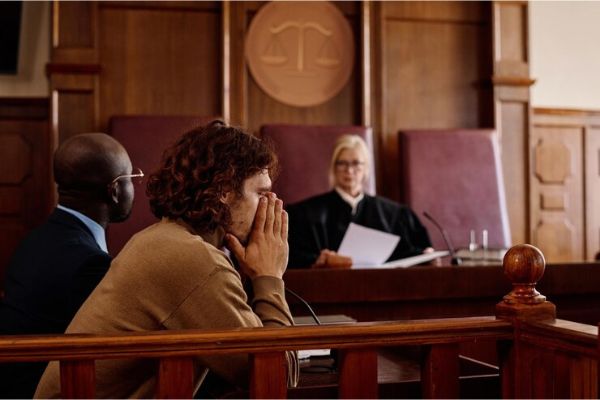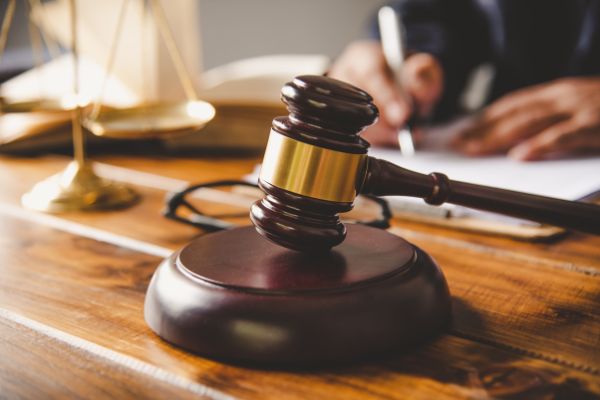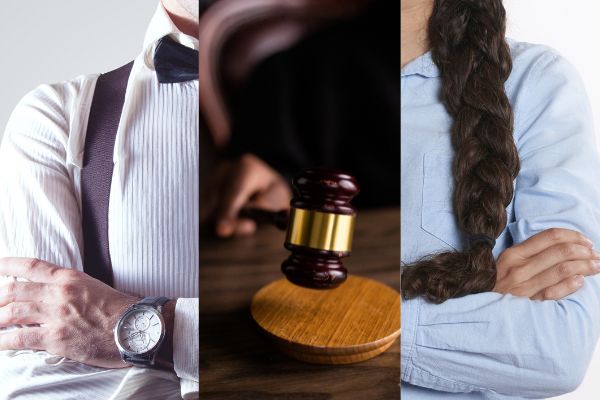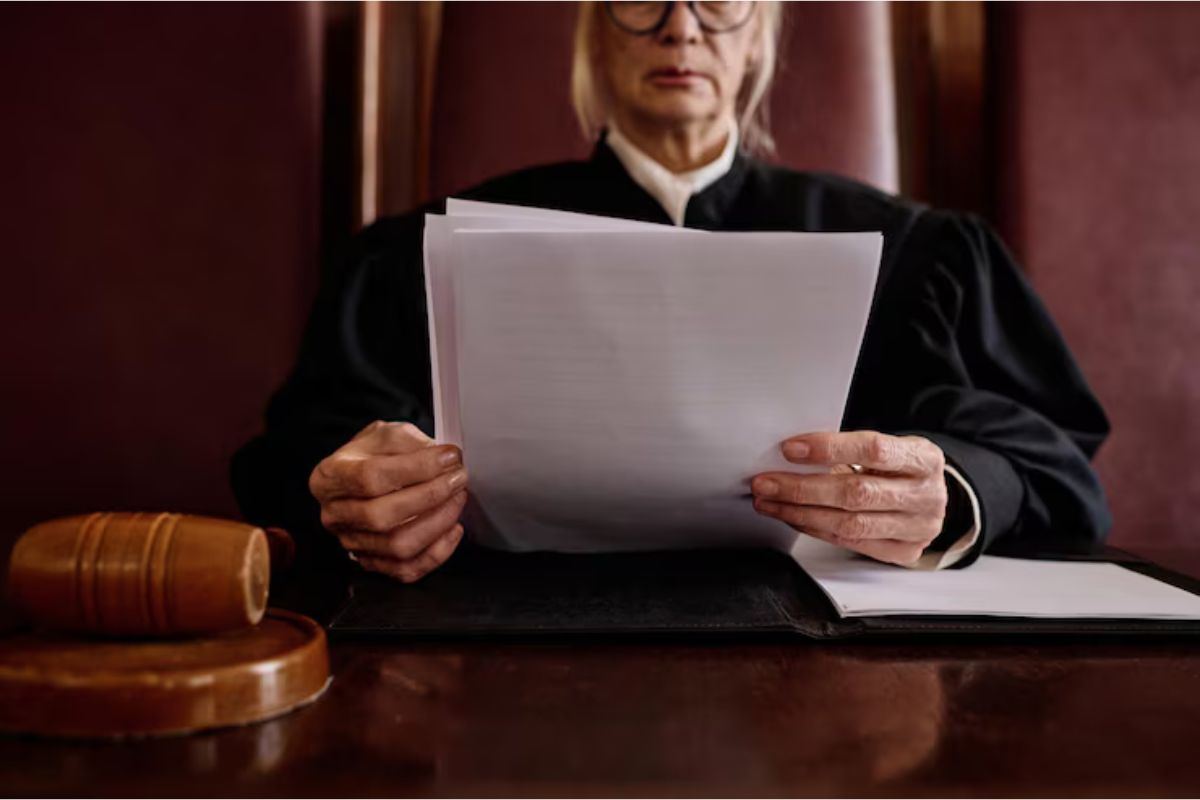Why Do People Receive Court-Ordered Therapy Sessions?
Court-ordered therapy is a legal tool designed to help people correct harmful behavior. It focuses on change, not punishment. Courts use this approach when they believe someone will benefit more from support than incarceration.
This type of therapy is especially common for people with addiction, mental health problems, or those involved in family-related offenses. It allows the justice system to treat root causes, not just surface-level actions.
By offering therapy instead of jail, the system reduces repeat offenses. It also helps people reintegrate into society with better coping tools. Instead of creating more hardened criminals, court-ordered therapy works to prevent future harm.
Many courts now view this option as a smart, long-term solution. It’s used in both adult and juvenile systems and continues to grow as an effective alternative.

What Court-Ordered Therapy Means and How It Works
Court-ordered therapy is a legal directive requiring individuals to participate in counseling or psychological treatment as part of a court ruling. Often issued in cases involving substance abuse, domestic disputes, mental health concerns, or juvenile offenses, this type of therapy aims to support rehabilitation and reduce the risk of reoffending. Understanding what court-ordered therapy entails, who it applies to, and how it operates within the justice system is essential for anyone navigating legal or therapeutic processes. In this section, we’ll break down the purpose, structure, and outcomes of court-mandated counseling, shedding light on how it functions and what individuals can expect.
A Required Part of a Legal Sentence
Court-ordered therapy happens when a judge decides someone must attend counseling. This can happen during sentencing or as part of a deal with the court. Sometimes, it’s a condition for parole or probation.
Juvenile offenders often get this option to avoid a permanent record. Adults may receive it if the court sees a chance for reform.
The therapy must be completed within a specific timeframe. The individual usually checks in with both their therapist and legal officer. Failing to follow the plan can lead to serious consequences, including jail.
Types of Therapy Courts Can Order
Each case is different, so therapy options vary. Here are the most common types:
- Anger Management: Helps people control reactions and avoid violence in future situations.
- Parenting Classes: Offers guidance for safe and healthy parenting after custody or abuse cases.
- Substance Abuse Treatment: Supports recovery from alcohol or drug addiction.
- Mental Health Counseling: Addresses depression, anxiety, or other mental health concerns.
- Domestic Violence Counseling: Focuses on preventing future abuse and understanding power dynamics.
- Reunification Therapy: Rebuilds relationships between separated children and parents.
- Victim Impact Programs: Lets offenders see how their actions hurt others, especially in DUI or theft cases.
In some situations, more than one therapy type may be required. The court aims to tailor treatment to the offender’s personal challenges.
What Makes This Type of Therapy Different?
Court-ordered therapy is not optional. Skipping sessions or failing to participate may lead to further legal trouble. The court tracks progress closely, often requiring reports from therapists.
Another key difference is confidentiality. In regular therapy, everything said stays between client and therapist. In court-ordered therapy, therapists must share updates with the court. These reports show whether the individual is following the plan and making progress.
In this sense, therapy becomes both a healing process and a legal responsibility. This dual purpose can create added pressure—but also greater accountability.

Why a Judge Might Choose Therapy Over Jail
When it comes to sentencing, judges weigh more than just the nature of the crime—they often consider the root causes of an individual’s actions. Therapy may be chosen over incarceration when mental health issues, substance use, or emotional trauma play a role. This reflects a shift toward rehabilitation over punishment, aiming to address the core drivers of unlawful behavior. By tackling these deeper issues, therapy-based sentencing helps individuals grow while reducing recidivism and promoting safer communities.
1. Tackling the Root of the Problem
Judges often turn to therapy when someone’s actions are tied to deeper personal struggles—trauma, addiction, or unregulated emotions. Rather than punishing the outcome (the crime), therapy targets the cause.
For instance, someone charged with shoplifting may be coping with depression or anxiety. A domestic dispute might stem from long-standing anger issues linked to past trauma. Therapy provides tools to understand and manage these behaviors.
By addressing the root problem, therapy can prevent escalation and reduce future criminal behavior, ultimately easing the burden on the prison system.
2. Offering a Second Chance Instead of Punishment
For nonviolent offenses or first-time violations, therapy offers a way to hold individuals accountable while allowing for rehabilitation.
With proper support, many begin making meaningful changes—avoiding reoffending, finding employment, and repairing relationships.
However, court-ordered therapy isn’t a “get out of jail free” card. Failure to comply can result in stricter penalties, including incarceration.
3. Building Long-Term Accountability
Therapy helps individuals take responsibility for their actions. Regular attendance, active participation, and demonstrated progress are often required.
Therapists guide behavior change, while the court ensures accountability. Together, they build a framework that supports lasting transformation—benefiting not only the individual but society as a whole.
Common Situations Where Court-Ordered Therapy Is Used
Court-ordered therapy isn’t reserved for only the most severe cases—it’s a tool used across a wide range of legal situations where behavior change, mental health treatment, or conflict resolution is necessary. From family law disputes to criminal cases involving substance abuse or aggression, judges may require therapy as part of a broader effort to promote accountability and reduce future offenses. These therapeutic mandates often aim to protect the public, support personal growth, and foster safer relationships. In this section, we’ll highlight some of the most common scenarios where courts mandate therapy and explain how it plays a pivotal role in the legal resolution process.
Can Therapy Really Replace Jail Time?
Yes, in many cases it does. Judges regularly use therapy as an alternative to incarceration. This is especially true for:
- First-time offenders
- Juvenile cases
- Nonviolent crimes
- Situations involving mental health or addiction
But there are limits. If someone refuses to participate or drops out of therapy, they may still face jail time. Courts don’t tolerate noncompliance, even with this more supportive approach.
Is Court-Ordered Therapy Effective?
Studies show that court-mandated therapy can be as effective as voluntary therapy. The biggest factor is whether the person engages honestly with the process.
When courts assign high-quality programs and experienced therapists, outcomes are usually positive. Many individuals say the experience changed their lives for the better.
The key is proper support and a willingness to change.
Exploring Other Court-Related Therapy Options
What Is a Diversion Program?
Diversion programs are legal paths that let people avoid jail or a criminal record. These programs often include therapy, education, and community service.
Once the person completes the program, the charge may be reduced or erased. These programs are popular for young or low-risk offenders.
They give people a clean slate while still making them take responsibility.
How Drug Courts Combine Law and Therapy
Drug courts are special court systems for people facing addiction-related charges. Instead of going straight to jail, offenders are assigned treatment plans.
They attend regular therapy, drug tests, and court check-ins. If they follow the plan, they avoid jail. If they fail, they face sentencing.
These courts are highly structured and effective in reducing drug-related crimes.
What Are Victim Impact Panels?
Victim impact panels are often used in DUI or reckless driving cases. Offenders attend sessions where victims share personal stories.
These stories reveal the real-world pain caused by impaired driving. The main goal is to help offenders understand their actions and prevent repeat behavior.
It’s a powerful way to build empathy and encourage personal responsibility.

Specific People Who Might Be Ordered to Attend Therapy
Who Needs Anger Management Classes?
Anyone charged with violent or aggressive acts may be ordered to attend anger management. This includes:
- Road rage incidents
- Bar fights
- Domestic disputes
- Threats or intimidation
The goal is to teach emotional control, stress management, and healthier ways to handle conflict.
Anger management helps prevent future violence by giving people tools to manage their reactions.
Can Parents Be Required to Get Therapy?
Yes. Courts often order therapy before deciding child custody or returning parental rights. This is common after:
- Substance abuse
- Domestic violence
- Neglect or abuse allegations
- Separation or divorce with high conflict
Therapy ensures parents can provide a safe and stable environment for their children. It also shows the court they are working to change.
What Is Reunification Therapy and Who Needs It?
Reunification therapy helps parents and children reconnect after a separation or dispute. It’s often used when:
- A child has been removed from the home
- One parent has lost contact
- There are allegations of abuse that courts want to investigate and resolve
The therapist acts as a neutral guide. They help rebuild trust, improve communication, and ensure the relationship is safe and healthy.
This therapy can take time, but it often leads to stronger family bonds and emotional healing.
Court-Ordered Therapy as a Path to Change
Court-ordered therapy is more than just a legal obligation. It’s a structured chance for people to address real problems. When used correctly, it can transform lives and prevent future crimes.
While it’s not the right fit for every case, it offers a humane, practical solution for many situations. Judges, therapists, and legal systems work together to guide people toward growth.
For those willing to try, court-ordered therapy provides something jail rarely does—a second chance backed by real support.
Conclusion
Court-ordered therapy bridges justice and healing by addressing the personal struggles behind unlawful behavior. Instead of focusing solely on punishment, it offers individuals a real opportunity to change—guided by structured support. Whether someone is battling addiction, trauma, or emotional regulation issues, therapy encourages growth, accountability, and safer reintegration into society. Judges increasingly view this approach as a proactive way to reduce repeat offenses and build stronger communities. It’s not about leniency—it’s about long-term solutions. For those willing to engage, court-mandated therapy provides a meaningful alternative to incarceration and a clearer path toward lasting change. In many cases, it becomes the turning point that helps individuals reclaim control of their lives with dignity and direction.
FAQs
1. Can I choose my own therapist for court-ordered therapy?
Yes, but the therapist must be approved by the court. Their program must meet legal and reporting requirements.
2. What happens if I miss a court-ordered therapy session?
Missing sessions can result in legal consequences. Courts may issue warnings, fines, or even jail time.
3. Is everything I say in therapy shared with the court?
No, but therapists must report attendance and progress. Confidentiality is limited in court-mandated programs.
4. Can court-ordered therapy help clear my record?
Yes, especially in diversion programs. Completing therapy can reduce charges or prevent a permanent record.
5. How long does court-ordered therapy usually last?
It depends on the offense and court order. Some programs last weeks, others continue for several months.

